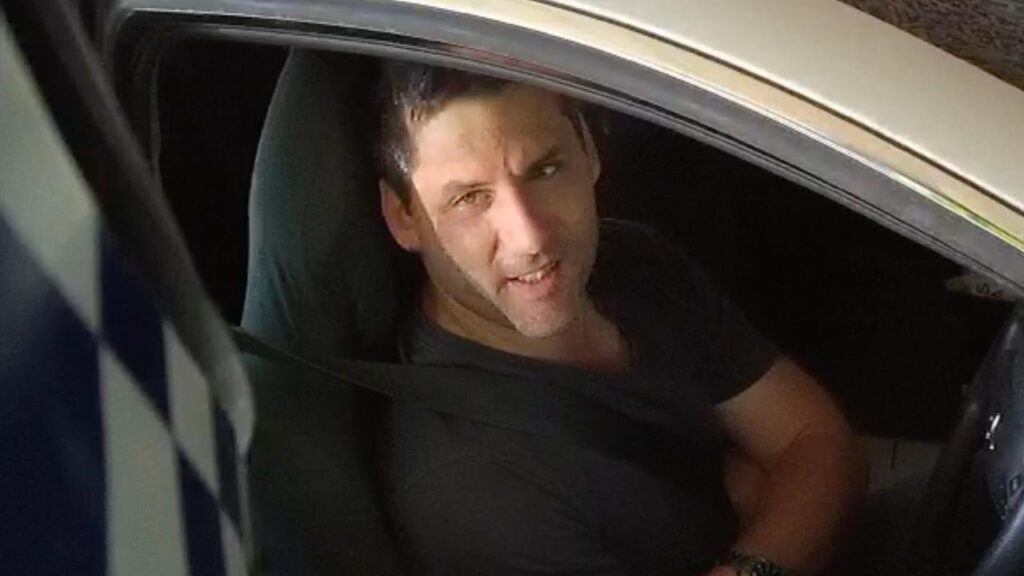From treated to tragic: the deterioration of a killer
Miklos Bolza |

Top of his class at university and with the ability to speak three languages, the future looked bright for Joel Cauchi.
But a series of fateful decisions would lead to him being overlooked by authorities and detached from the mental health system before he became one of Australia’s worst mass killers.
The 40-year-old armed himself with a pigging knife when he killed six people and injured 10 others at Sydney’s Westfield Bondi Junction shopping centre while experiencing a psychotic episode in April 2024.

Details about his history and mental health decline were revealed during an inquest into the tragedy, which ended when the knife-wielding Cauchi was shot dead by a senior police officer.
The Toowoomba man had been diagnosed with schizophrenia as a teen after experiencing hallucinations.
He was successfully treated for decades through a combination of anti-psychotic medication and psychiatric treatment in the public and later private systems.
Cauchi was a “high-functioning” schizophrenic who had a university degree, coming top in his class, and could speak German and Mandarin, his mother later told Queensland police.
By June 2019 he had been weaned off the two drugs he was taking after he complained about the medicines’ side-effects.
Eight months later, he moved to Brisbane to study to become an English teacher but was cut off from his psychiatric sessions as COVID-19 swept across the world.
He fell off the radar of mental health professionals from that point.
But numerous interactions with Queensland police between 2021 and 2023 should have signalled something was wrong, the inquest into the mass stabbing heard.
Three times – in October 2020, November 2020 and May 2021 – Cauchi was pulled over by Brisbane highway patrol officers when they witnessed his erratic driving.
It included rapidly braking and accelerating, and swerving into adjacent lanes.
On each of those occasions, he told officers he was schizophrenic but unmedicated.
In May 2021, he told a senior constable he did not realise he was driving in the dangerous manner.
“You didn’t realise you were braking and then accelerating and then braking and then accelerating?” the officer asked.
“No, no,” Cauchi replied.
The then-37-year-old had been on his way to charity Wesley Mission to get food.
He received a warning from police.
The same month, police were called to an apartment complex in the inner-Brisbane suburb of Kangaroo Point.
They had been notified of a man screaming and the sounds of someone being hit.
When Cauchi answered his door, he told officers he had been slamming his fridge.
Just over a year later, he made repeated phone calls to a Toowoomba girls high school asking permission to watch events like swimming carnivals, netball and gymnastics.
A concerned staff member notified police.
From around 2022, Cauchi’s online search history showed his interest in disturbing topics such as serial killers, mass stabbings and weapons.
“Five best assault rifles in the world,” one search read.
“14 bands that serial killers loved,” another said.
On an evening in January 2023, Cauchi called police to his parents’ Toowoomba home, accusing his father Andrew of stealing his military knives.
One was the same type of knife later used in the shopping centre attack.
By that stage, Cauchi had quit studying to be a teacher and returned to live with his parents after his unit lease ran out.
His mother Michele told police her son had been up at 3am making noises and stamping his feet.
Cauchi’s father took the knives and gave them to a friend to look after because he was worried about his son having them in his current mental state.
“He’s been in a rage and he was pushing us around a little bit,” Mrs Cauchi said.

Cauchi claimed he would be made homeless, left bankrupt and killed if the knives were not returned.
Mrs Cauchi pleaded with officers that her son needed help.
“He’s gone too far now. He doesn’t know he is sick,” she said.
“I don’t know how we’re gonna get into treatment really. Unless he does something drastic.”
Speaking with another officer, Cauchi was asked about his mental health.
“Yeah, it’s been, um, terrific, actually … really good,” he said.
Cauchi’s mental condition was never seen by police as being so bad that he needed involuntary treatment, the inquest was told.
But one of the officers who attended the family home was concerned enough to email the police mental health incident co-ordinator about a follow-up the night after the knife-related call-out.
That email was seen but nothing further was done.
Fifteen months later, Cauchi had become homeless and was living in Sydney’s eastern suburbs before he stepped into the Bondi shopping centre and murdered six people with his knife.
Lifeline 13 11 14
beyondblue 1300 22 4636
AAP